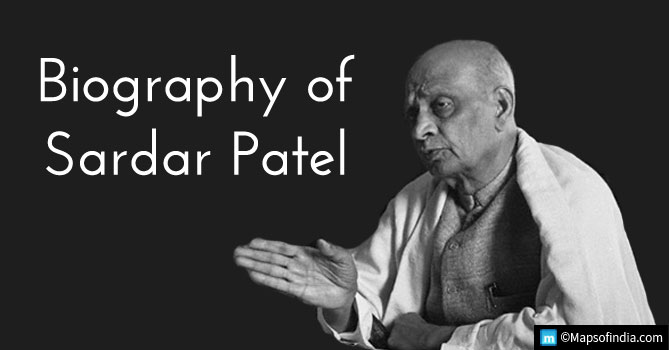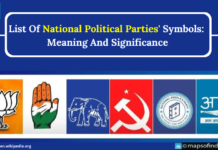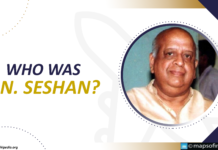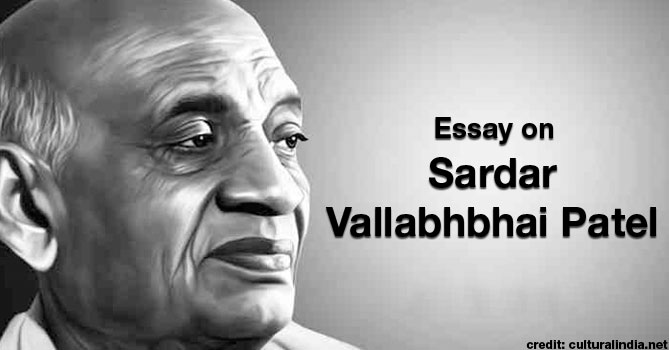
Narendra Modi recently commented that if Sardar Patel had become the first Prime Minister of India, then the fate of India would have been different. He said this while addressing the opening ceremony of Shri Sardar Vallabhbhai Smruti Smarak. Modi said that Sardar Patel was a liberal and secular leader respected for his different but very effective ideology.
Sardar Vallabhbhai Jhaverbhai Patel, popularly known as Sardar Patel, was born on October 31, 1875, and raised in a small town of Gujarat. His exact place of birth is not known but his native place was Karamsad. Sardar Patel belonged to a very humble family and like other families in the village, his family also had no formal education. But because of sheer determination and hard work, he achieved great heights in his life. He helped his father in the fields, plowing and sowing seeds, and also learning arithmetic tables taught to him by his father.
He got married at the age of 18 years to Jhaverba from the village of Gana. But unfortunately, she died of cancer in Bombay (presently Mumbai) in January 1909. Patel was such a strong personality that even getting news of his wife’s death could not stop him performing his duty. He was cross-examining a witness in court when he got the note stating the death of his wife. He read the note, put it back in his pocket, and proceeded to complete the case. He told others about the news only after the case. Sardar Patel was just 33 years old at that time and decided not to get remarried.
Education and Early Life
Patel had his schooling in Nadiad, Petlad, and Borsad. He completed his matriculation at the age of 22. Though he was regarded just a common boy by his friends, Patel had great plans for himself. He wanted to study in England to become a barrister. So he studied to become a lawyer and saved money for his dream. Sardar Patel became the first chairman and founder of the Edward Memorial High School (EMHS), Borsad. He was 36 years old when he went to England for further study at the Middle Temple Inn. Patel completed the 36-month course in 30 months and topped his class without any previous college background. He came back to India and settled down in Ahmedabad.
Patel became the sanitation commissioner of Ahmedabad in 1917. But he was not interested in politics because of clashes with the British government on many civic issues.
Patel was also elected as a municipal president of Ahmadabad in 1922, 1924 and 1927. He worked for the betterment of the city by refining the electricity, drainage, sanitation system, and the school system.
Sardar Patel and Gandhi Ji
Patel was practicing law when he came across the great ideals of Mahatma Gandhi. All of us know that Gandhi Ji had philosophies of non-violence (Ahimsa) and Satyagraha. He fought against the British rule with these weapons. Initially, Sardar Patel was not inclined to Gandhi Ji’s philosophies but after the Champaran incident, he became one of the adherent followers of Mahatma Gandhi.
Sardar Patel led the peasants of Bardoli in a revolt against the British government in 1927 for uninformed enhancement of land revenue by the government. Each village gave assurance to Sardar Patel that no tax would be paid and they would fight with courage and non-violence. Daily war bulletins consisting of speeches of Sardar Patel were distributed in the villages. The impact was so strong that about 87,000 villagers literally locked themselves in their houses with their families and cattle for the period of three months. There was no work in the fields. Seeing this mass movement, the government lowered its tax increase. For Sardar Patel, it was the turning point in his life.
He fully supported the non-cooperation movement led by Gandhi Ji. More than 300,000 members were recruited and Rs. 15 lakh was raised at that time by Patel. He threw away his English styled clothes and even his daughter and son did the same. They changed their clothing to khadi.
He not only participated in the freedom struggle but also worked extensively against social issues like untouchability, alcoholism and caste-based discrimination, emphasizing on women empowerment.
Involvement in Dandi March
Gandhi Ji broke the law prohibiting the manufacturing of salt from seawater at Dandi, a small seaside village near Surat. In the Dandi March, Sardar Patel played an important role. He was deputed by Gandhi ji to precede him on his march. During this Patel was arrested on the way and imprisoned for three months.
Sardar Patel and his role in free India
Sardar Patel was the first Home Minister and Deputy Prime Minister of India. He stepped down at the request of Gandhi ji so that Nehru could become the first Prime Minister. Representatives from all the 16 states and the Congress were asked by Gandhi Ji to select a name and out of all, 13 recommended the name of Patel. But Patel refused to become the Prime Minister just for Gandhi Ji.
Consolidation of the states
The most commendable and historic achievement of Sardar Patel was the integration of 562 princely states under the Union of India. Because of his strong personality, princes were drawn towards him for this unification. To date, he is remembered as a man who united India.
His last days
Sardar Patel’s health started deteriorating in 1950. Because of blood in a cough, Maniben started restricting his work and meetings. Personalized medical staff was hired for Patel. After November 2, his health worsened even more and he was confined to bed. He died on December 15, 1950, after a massive heart attack (his second attack) at Birla House in Bombay. Patel was cremated at Sonapur (Now Marine Lines).
Sardar Vallabhbhai Jhaverbhai Patel was the social leader who played a prominent role in the freedom struggle of India. To date, he is remembered as the most successful home minister of India. In 1991 he was officially awarded the Bharat Ratna, India’s highest civilian honour, posthumously. October 31, his birthday, is celebrated as Sardar Jayanti in India. Today many institutes and monuments have been named after him to honour this great man of India.




